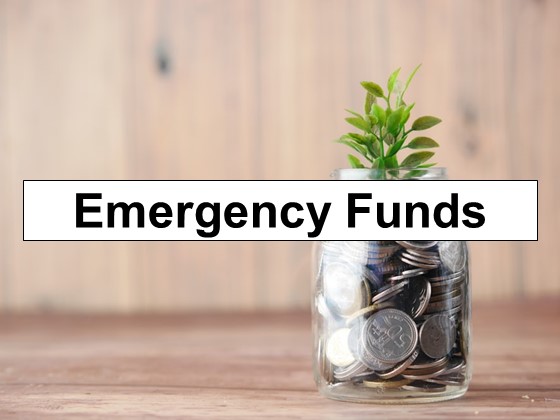Life throws curveballs. It’s a cliché for a reason – unexpected events can derail even the most meticulously planned budgets, and when you’re also trying to prepare your home and family for emergencies of all sorts, it makes financial stewardship even more crucial. It could be anything: a car breaks down, the washing machine floods the basement, or a medical emergency throws your health and finances into disarray. These situations can quickly spiral into debt and financial hardship if you’re not prepared…and you don’t want that!
This is where the magic of a basic emergency fund comes in. An emergency fund is a safety net, a pool of cash readily available to cover unexpected expenses without resorting to high-interest credit cards, dipping into your long-term savings goals, or ruining your ability to buy more preps.
Why Build an Emergency Fund?
Here are several reasons to prioritize building an emergency fund:
- Peace of Mind: Knowing you have a financial buffer to handle surprises reduces stress and allows you to focus on resolving the issue at hand, not panicking about affording it.
- Avoid Debt: High-interest credit card debt can quickly snowball and trap you in a cycle of minimum payments. An emergency fund allows you to pay for unexpected expenses upfront, avoiding the financial burden of credit card debt.
- Maintain Financial Goals: A medical emergency or job loss shouldn’t derail your long-term financial goals, like saving for retirement or a down payment on a house. An emergency fund protects your long-term savings from being tapped into during unexpected situations.
- Improves Credit Score: Debt negatively impacts your credit score, making it harder and more expensive to borrow money in the future. An emergency fund helps you avoid taking on new debt, protecting your credit score.
How Much Should You Save?
The ideal emergency fund size depends on your individual circumstances. A good starting point is 3-6 months worth of essential living expenses. This includes housing costs, groceries, utilities, minimum debt payments, and transportation. If you have dependents, consider factoring in additional childcare or healthcare costs.
Here’s a breakdown of emergency fund targets based on your financial situation:
- Single with no dependents: 3 months of living expenses
- Dual income with no dependents: 3-4 months of living expenses
- Family with dependents: 4-6 months of living expenses
Building Your Emergency Fund
Saving for emergencies can feel overwhelming, but even small steps can make a significant difference. Here are some tips to get you started:
- Automate your savings: Set up automatic transfers from your checking account to your emergency savings account. This way, you “pay yourself first” and ensure consistent progress towards your goal.
- Review your budget: Identify areas where you can cut back on spending. Even minor adjustments, like reducing eating out or entertainment expenses, can free up money to contribute to your emergency fund.
- Side hustle: Consider a part-time job or freelance work to generate additional income specifically for your emergency fund.
- Sell unused items: Declutter your home and sell unwanted items through online marketplaces or garage sales.
Beyond the Bank: Alternative Strategies
While a readily accessible savings account is a core component of emergency preparedness, there are other strategies to consider:
- Cash at Home: Keep a small amount of cash readily available at home for emergencies where traditional payment methods might not be accepted, like during a power outage.
- Gold and Silver: Precious metals like gold and silver are considered relatively stable investments that can be readily liquidated during emergencies. However, their value fluctuates, so they shouldn’t be your sole emergency preparedness strategy.
- Barter System: Develop relationships with friends, neighbors, or local businesses where you could barter goods or services during an emergency.
- Insurance: Having adequate health, auto, and homeowner’s/renter’s insurance can significantly reduce financial burdens during unexpected events. Review your policies regularly to ensure they meet your current needs.
- Government Assistance Programs: Don’t be afraid to explore government assistance programs in case of job loss or natural disasters. Many resources are available to help individuals and families weather financial hardships.
Takeaways
Remember: An emergency fund is a work in progress. Start small, be consistent with your contributions, and adjust your goals as your financial situation evolves.
Financial emergencies are a fact of life, but with a solid emergency fund and a proactive approach, you can navigate them with less stress and financial strain. Start building your emergency fund today and take control of your financial future.

Leave a Reply